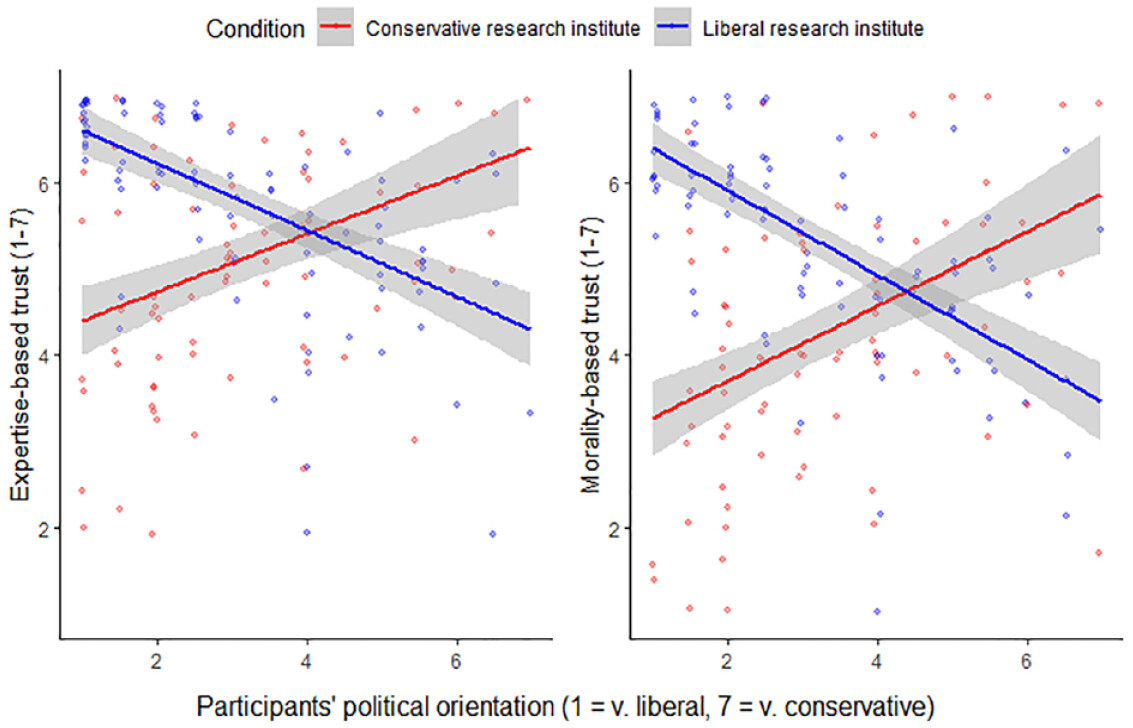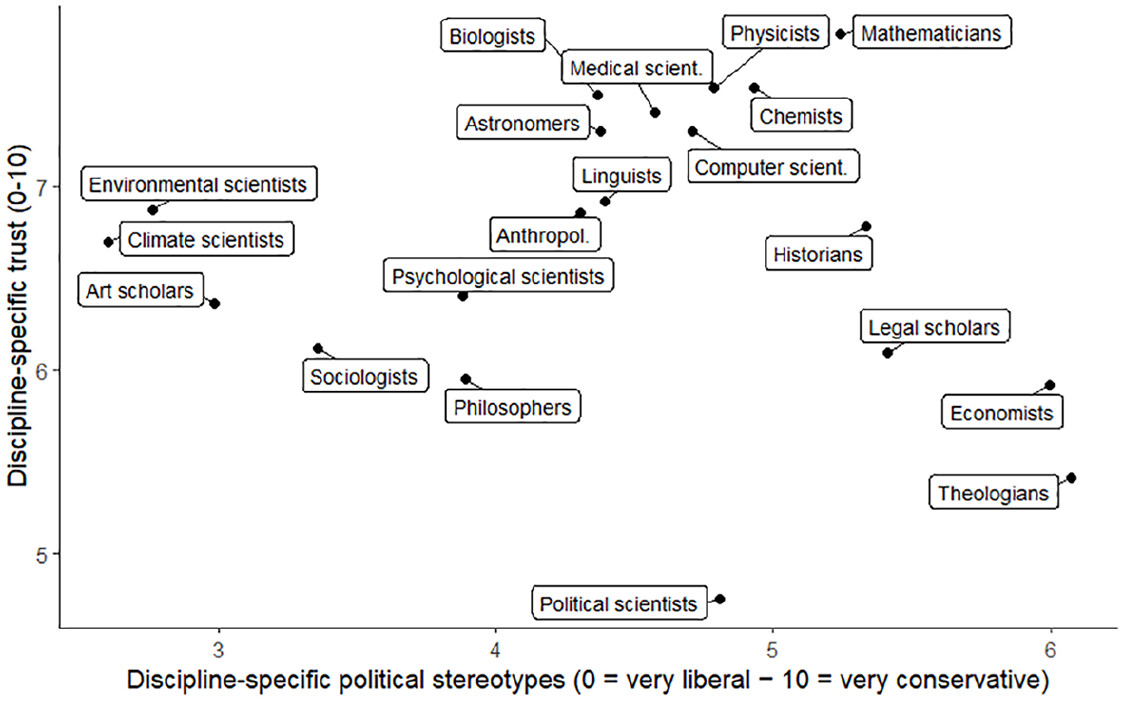Altenmüller, M. S., Wingen, T., & Schulte, A. (2024). Explaining Polarized Trust in Scientists: A Political Stereotype-Approach. Science Communication, 0(0). https://doi.org/10.1177/10755470231221770Key Findings
Stereotypes Influence Trust: Political beliefs about scientists significantly impact public trust in science.
Political Orientation Affects Perception: Trust in scientists is influenced by their perceived political orientation and how it aligns with someone’s beliefs.
Conservative and Liberal Differences: Conservatives trust the science less if scientists are perceived as liberal, while liberals do the opposite.
Impact on Behavior and Policy: These perceptions affect pandemic behavior, policy support, and information-seeking, and are observed across different countries and scientific disciplines.
Summary
The study examines the impact of political views and public trust in science. The results show that people’s perception of scientists’ political orientation influences their trust in science. Conservatives tend to distrust scientists seen as liberal, while liberals show more trust in such cases. These stereotypes affect behavior during pandemics, policy support, and information-seeking.
The study findings indicate that across disciplines, participants tended to perceive the scientific fields as politically liberal or moderate, with none being seen as distinctly conservative. Participants’ conservatism had a negative association with trust in scientists. The link between participants’ conservatism and trust in scientists was stronger when participants perceived scientists as more liberal compared to when they perceived them as more conservative.
The study found that this particular effect occurred across a wide range of subjects. Even after taking into account things like the participants’ own behaviors, their views on how scientists behave, and their age and gender, the effect still held up.
Implications
Science Communication: When scientists come from disciplines that are perceived as neutral or moderate, such as economics, they are more likely to be trusted by both political camps. Showing that the scientific consensus includes scientists from a range of political backgrounds, when it does, could increase trust among conservative groups.
Morality-Based Trust: The polarization of trust in science among conservatives is more significantly tied to questions of morality—such as the perceived integrity and benevolence of scientists—rather than their expertise. Improving trust could involve highlighting scientific processes that help prevent bias, such as peer review and open-access practices, emphasizing the moral integrity of scientific research.Transparency in science is radical in comparison to some fields so demonstrating that may be beneficial.
Individual Scientist Representation: Often science is presented in a formal setting and engagement with the public can be as well. This leaves the public with little information about the individuals themselves meaning they may rely on stereotypes.
Limitations
Scope of Scientific Disciplines: The study may not cover all relevant scientific disciplines, potentially missing specific groups.
Limited Concept of Political Ideology: The study’s liberal vs. conservative scale does not capture the full spectrum of political ideologies.
Sample Representativeness: Participants in the study may not represent the general population, affecting the generalizability of the findings.
Source
Citation
@article{infoepi_lab2024,
author = {{InfoEpi Lab}},
publisher = {Information Epidemiology Lab},
title = {Effect of {Political} {Views} on {Perception} of
{Scientists}},
journal = {InfoEpi Lab},
date = {2024-01-22},
url = {https://infoepi.org/posts/2024/01/22-political-views-science},
langid = {en}
}

